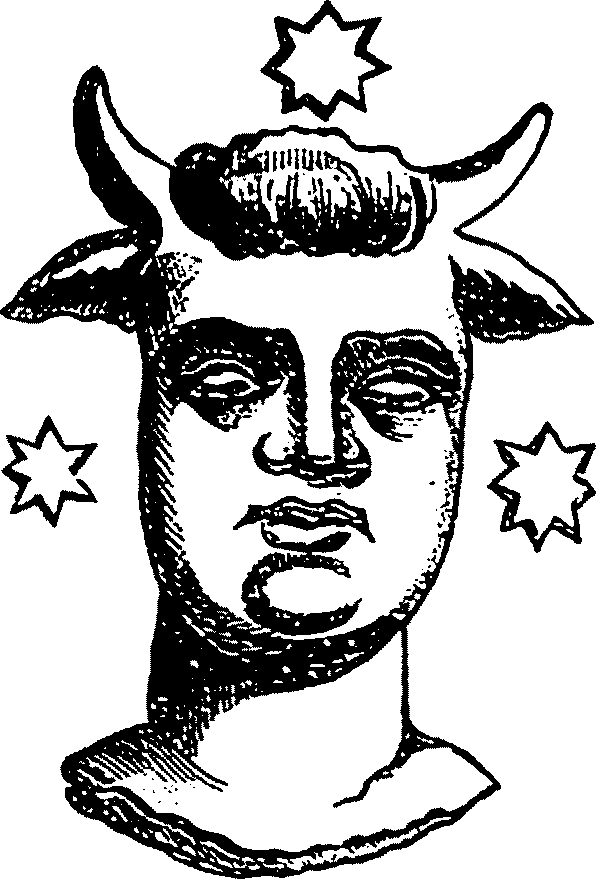
Baal
The deity was worshiped in many communities in the ancient Near East, especially among the Canaanites, who seem to have made him a god of fertility. Semitic term value (Hebrew, value ) meant "possessor" or "lord", although it could be used in a more general sense: for example, winged Baal was a winged creature, and in the plural valuable arrows meant archers. Term value also was attributeda god with a different name. Such an inaccuracy in the use of this word, however, did not prevent him from being attached to a very specific god: then Baal designated the universal god of fertility, who in these functions bore the title of Prince-Lord of the Earth, and also the owner of rain and dew, two forms of moisture necessary for fertility in Canaan. In the Ugaritic and Hebrew of the Old Testament, Baal was referred to as the god of the storm under the title "He who rides on the clouds." In Phoenician he was called Baal Shamen (in Aramaic - Baal Shamin), the god of heaven.
The nature and functions of Baal are known to us primarily from a number of tablets discovered since 1929 in Ugarit (modern Ras Shamra) in northern Syria and dated to the middle of ~ II century.millennium. These tablets, although closely associated with local Baal worship in his own temple, probably represent a common belief in Canaan. Fertility cycles were supposed to last seven years. In Canaan mythology, Baal, the god of life and fertility, was sentenced to death with Mot, the god of war and sterility. If Baal wins, there will be a seven-year cycle of fertility; but, if he was defeated, the country was gripped by seven years of drought and famine. The Ugaritic texts evoke other aspects of Baal's fertility, such as his relationship with Anat, his sister and his wife, and his procreation as a result of the union of a divine male calf with a heifer. When Baal played this role in these various forms,
But Baal was not exclusively a fertility god. He was also the king of the gods, a role in which he was portrayed as snatching divine power from Yamma, the god of the sea. The myths also speak of the battle in which he fought to obtain a palace as magnificent as that of other gods: he convinces Ashera to intercede with her husband El, the supreme god of the pantheon, to authorize the construction of the palace; The god of art and technology, Kotar, will take over the construction of a beautiful building on an area of 4000 hectares to Baal. This myth may have to do with the construction of the Temple of Baal in the city of Ugarit; next to this temple was the temple of Dagon, which, according to the tablets, was supposed to be the father of Baal.
C ~ XIV- th centuries, Baal worship was widespread in Egypt; and under the influence the Aramaeans who borrowed the Babylonian spelling of the name (Bel), the god was later known under the Greek name Belos, and then identified with Zeus.
Other groups worshiped Baal as a local god. The Old Testament often speaks of Baal in a particular area or of the Baalim in the plural, indicating that various local deities or "rulers" from different places existed under this name. It is not known whether the Canaanites considered these Baalim the same or different, but it does not appear that the Baal cult of Ugarit was limited to one city; and no doubt other communities also ascribed universal sovereignty to him.
References to Baal early in Israel's history do not necessarily indicate apostasy or even syncretism on the part of that nation. Judge Gideon was also called Jerubbaal (Judges, VI , 32), and King Saul had a son named Ishbaal (I STEAM ., VIII , 33). Among the Jews, "Baal" denoted the god of Israel in the same way as further north this name was attributed to God. Lebanon or Ugarit. He became the subject of anathema by the Jews when Jezebel to ~ IE й century, an attempt to introduce the Phoenician Baal of Israel to resist the local cult of Yahweh (I Kings XVIII ). One s.), the animosity towards the cult of Baal was so strong that the name was often replaced in complex names with its own derogatory word boshet (shame); thus the name Ishbosfei was replaced by the name of Ishbaal.
Leave a Reply